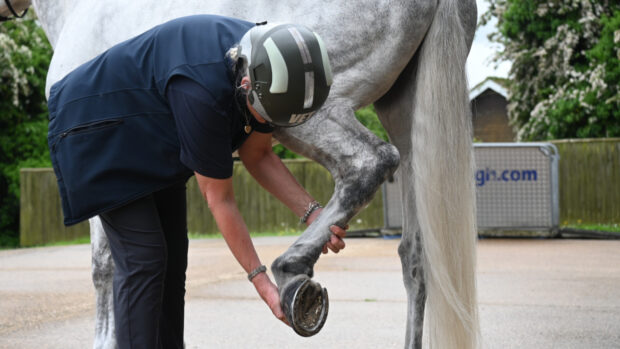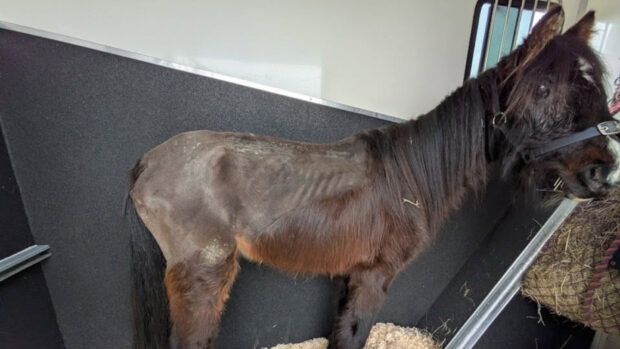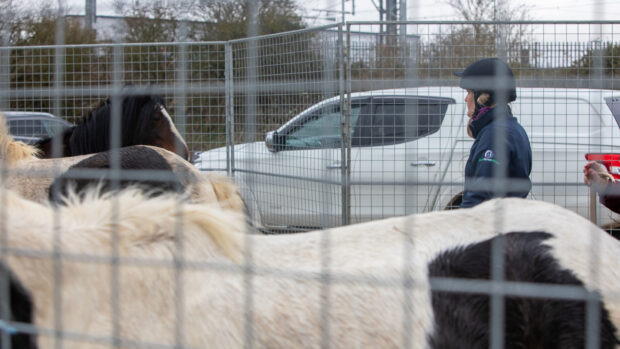A new law that allows plants to be genetically edited has recently been passed and will serve as a stepping stone towards the technology being used in animals.
The Genetic Technology (Precision Breeding) Act 2003 passed into law on 23 March, with its main intent being reinforcing food security. In other words, allowing farmers to grow drought- and disease-resistant crops.
Although the green light is on for plants only at the moment, the law includes provision to explore how gene editing could be used in future to help breed animals that are protected from catching diseases. That means establishing a proportionate regulatory system for precision-bred animals, to ensure welfare is safeguarded.
Lucy Morgan, of Stallion AI Services and Gemini Genetics, told H&H there are many different areas to consider with this new technology.
“Looking at its application in plants and food production, that does relate to the animal sector as well, when you are thinking about food for animals. We are seeing with our changing climate hay yields, for example, vary dramatically year on year,” she said, adding that with the warming climate, there could also be uses for the technology in protecting against certain diseases that may come to our shores in future.
“For rare breeds and breeding horses for sport, it does have relevance potentially to enable us to be more accurate in breeding.
“A lot of the animal side is still in discussion and it’s not something that can be hurried through. There’s going to be a lot of discussion needed from different parties so we can get a full assessment of it.”
She added that discussion is also needed to understand both the benefits and the potential for unintended consequences before going further.
British Equine Veterinary Association council member James Crabtree told H&H the new act has “lots of benefits for precision breeding using modern gene-editing biotechnology in cultivated plants and farmed animals”.
“Gene editing in horses and other equines could be utilised for the eradication of genetic diseases, but is restricted by many breed societies and regulatory bodies due to the potential for the technology to be used to gain a competitive advantage or compromise welfare,” he said.
“We are not aware that gene editing is commercially available in horses.
“In the United Kingdom, breeding from a gene-edited animal is restricted under the Animals (Scientific Procedures) Act 1986, and can only be performed under licence for research purposes, so we feel this is not going to result in the opening of the floodgates to widespread gene editing in equine breeding.
“Nevertheless, there is now a pathway should it offer significant advantages in the future.”
The NFU has long campaigned for this, with vice-president David Exwood adding that he is “delighted it has passed its final hurdle”. The RSPCA, on the other hand, has described it as “opening a Pandora’s box”.
“Gene editing could be a huge step backward for animals,” said RSPCA head of campaigns and public affairs David Bowles.
“We don’t believe this act should include animals, whether they’re farm, pet or wildlife. Invasive procedures are needed to create each line of gene-edited mammals, there is no history of use for this powerful technology, and it can cause unintended changes to the genome, with unpredictable effects.
“The RSPCA has serious animal welfare and ethical concerns about this.”
You might also be interested in:

Gene editing: a compromise or a boost to animal welfare?

Genetically modified horse embryo tech could be used to enhance performance
The main applications for genetic modification in horses would be likely to focus on “disease resistance, genetic disease reversion and

Subscribe to Horse & Hound magazine today – and enjoy unlimited website access all year round
Horse & Hound magazine, out every Thursday, is packed with all the latest news and reports, as well as interviews, specials, nostalgia, vet and training advice. Find how you can enjoy the magazine delivered to your door every week, plus options to upgrade your subscription to access our online service that brings you breaking news and reports as well as other benefits.




